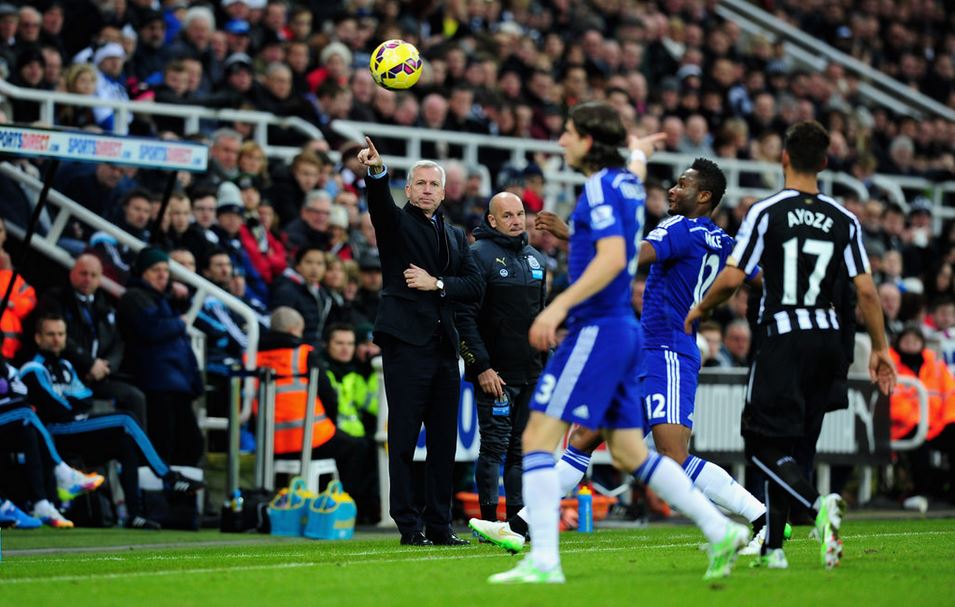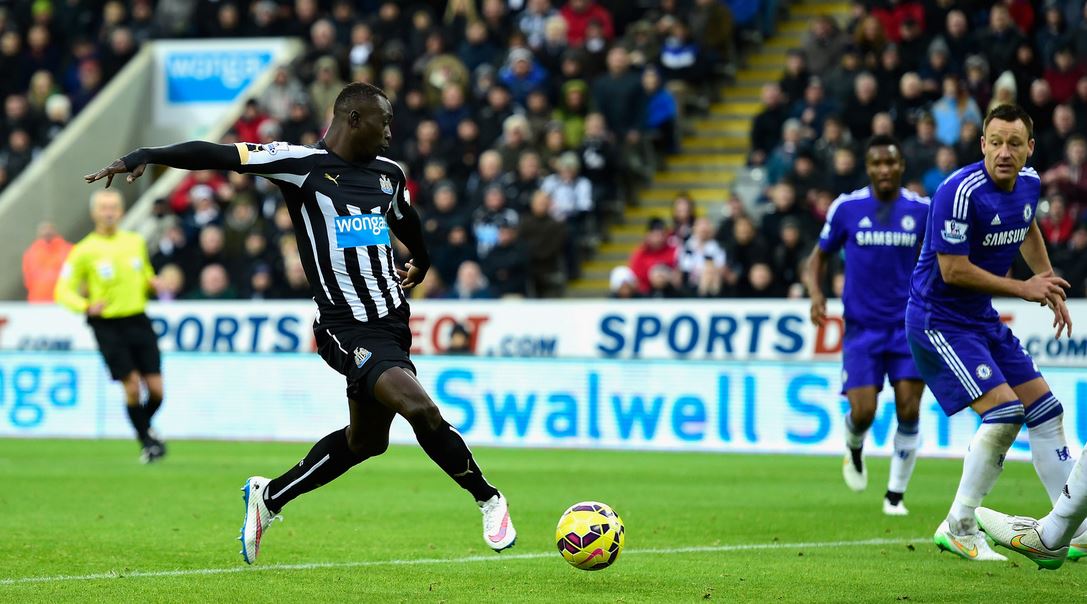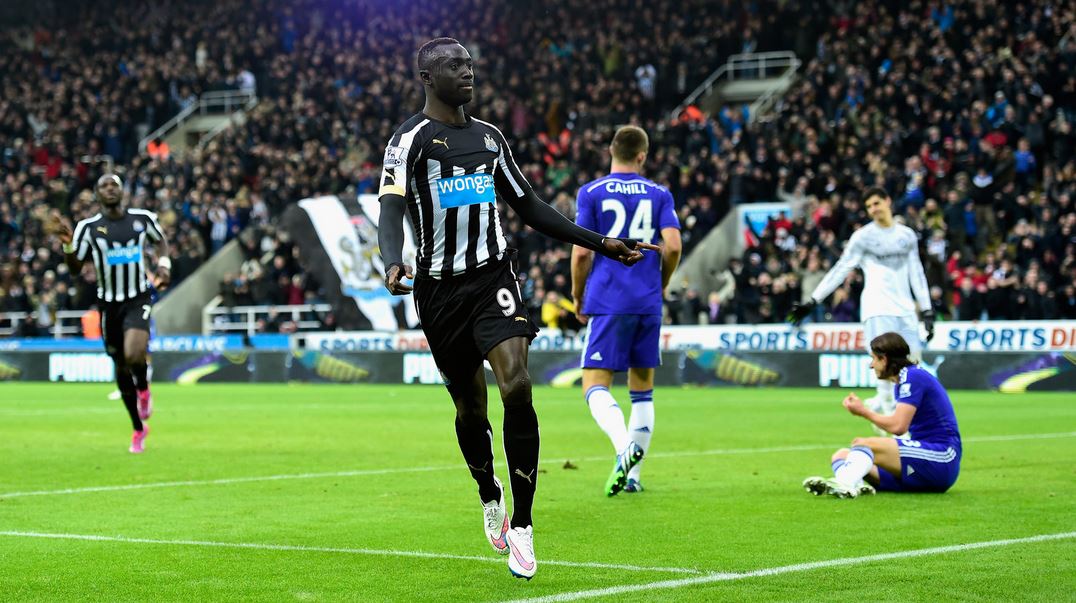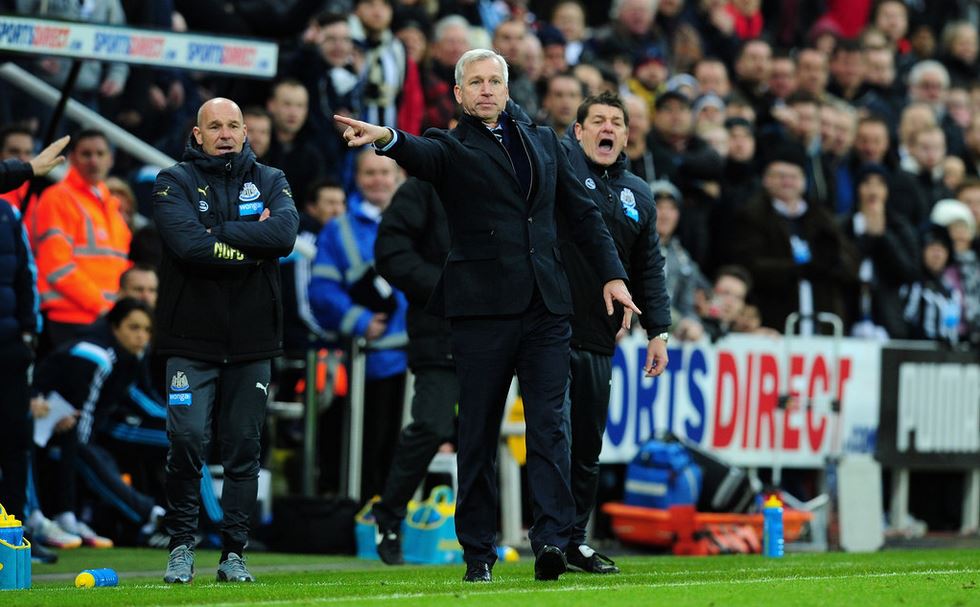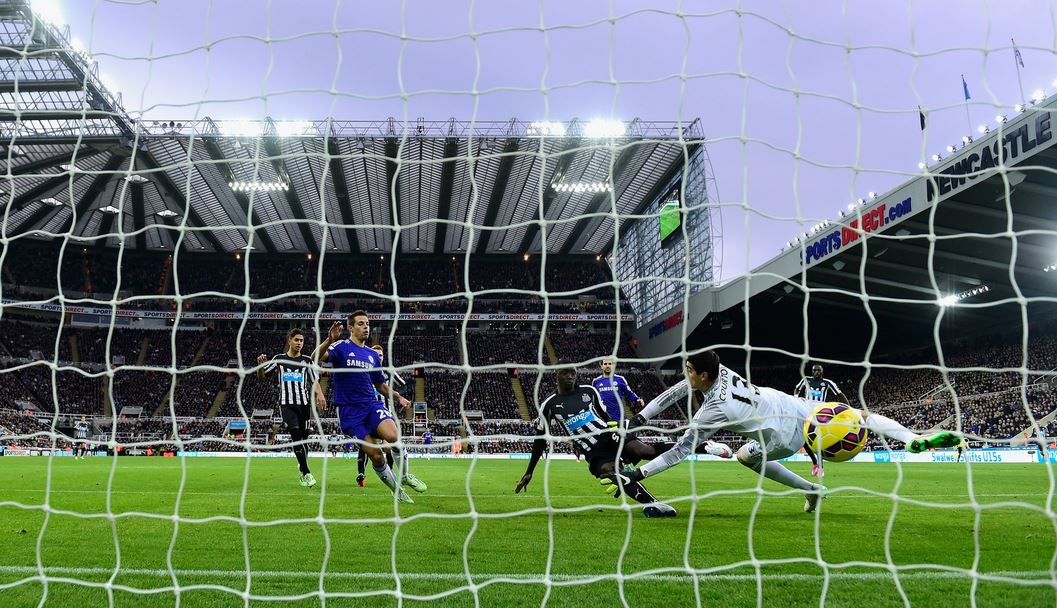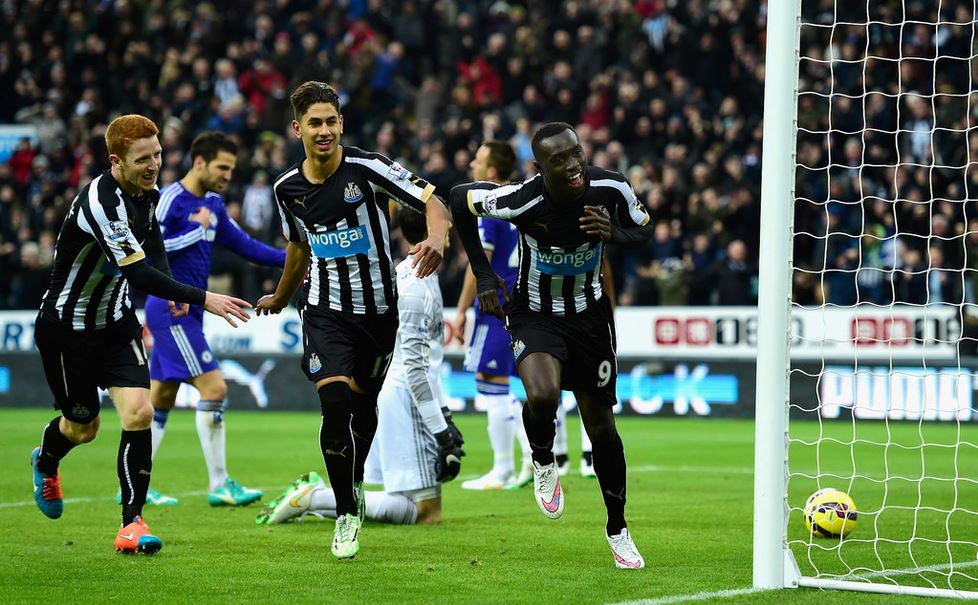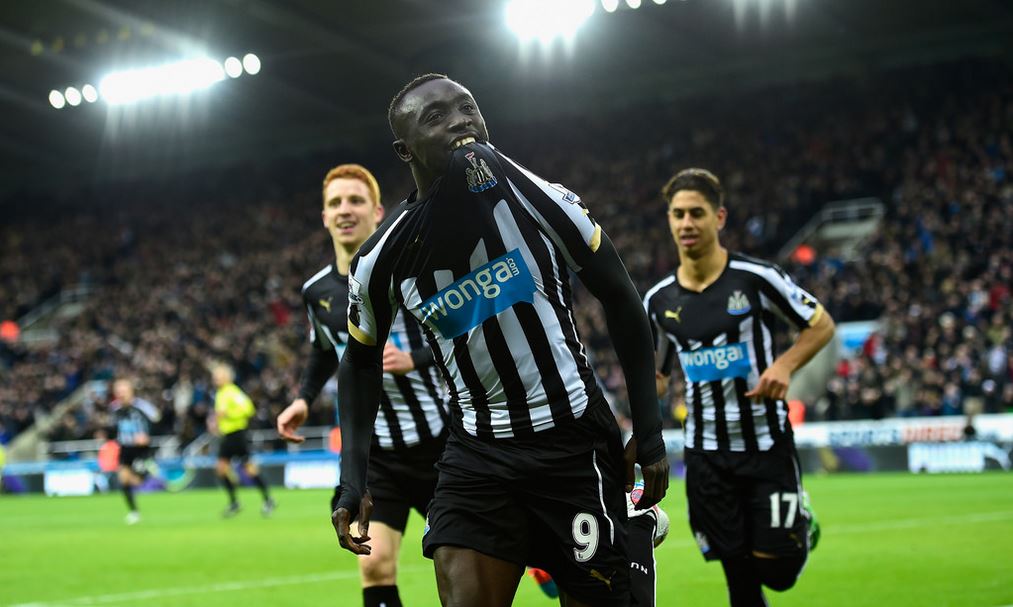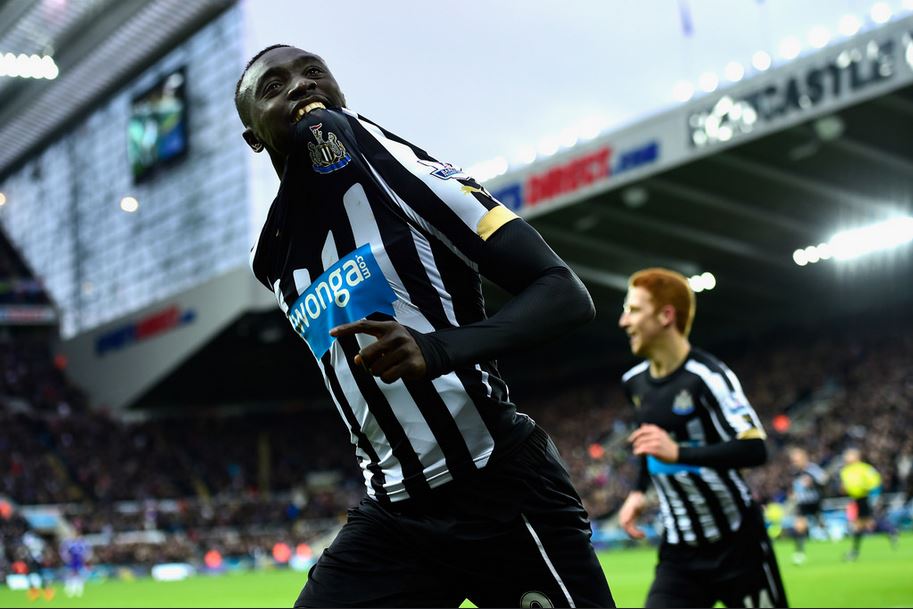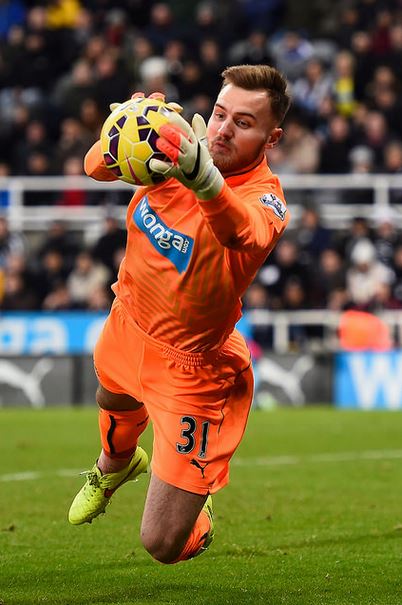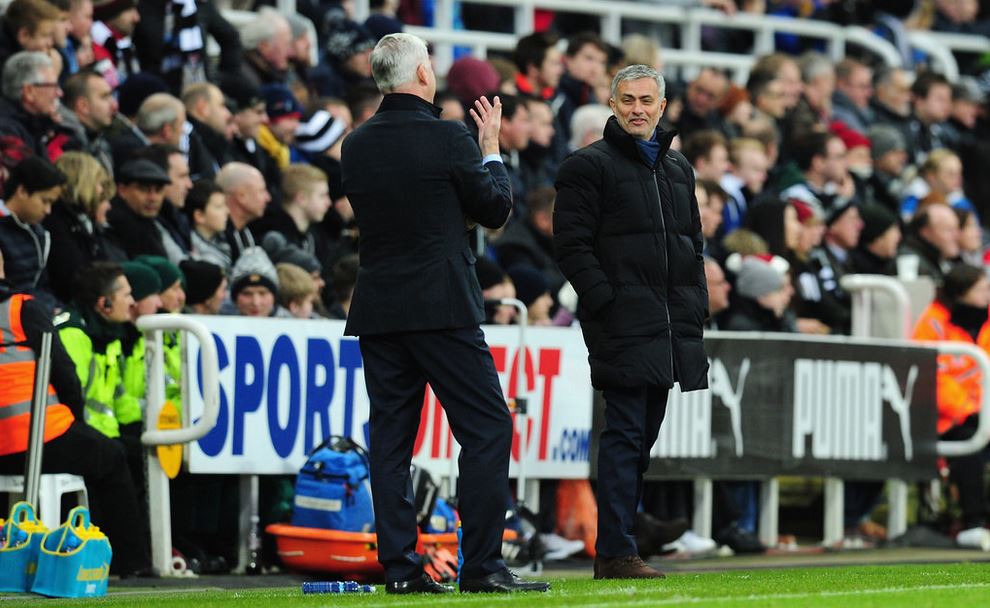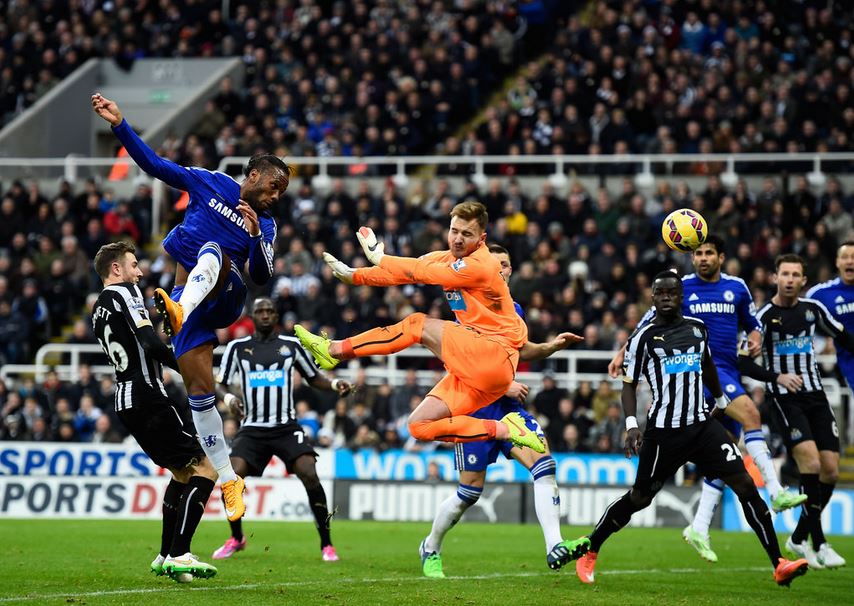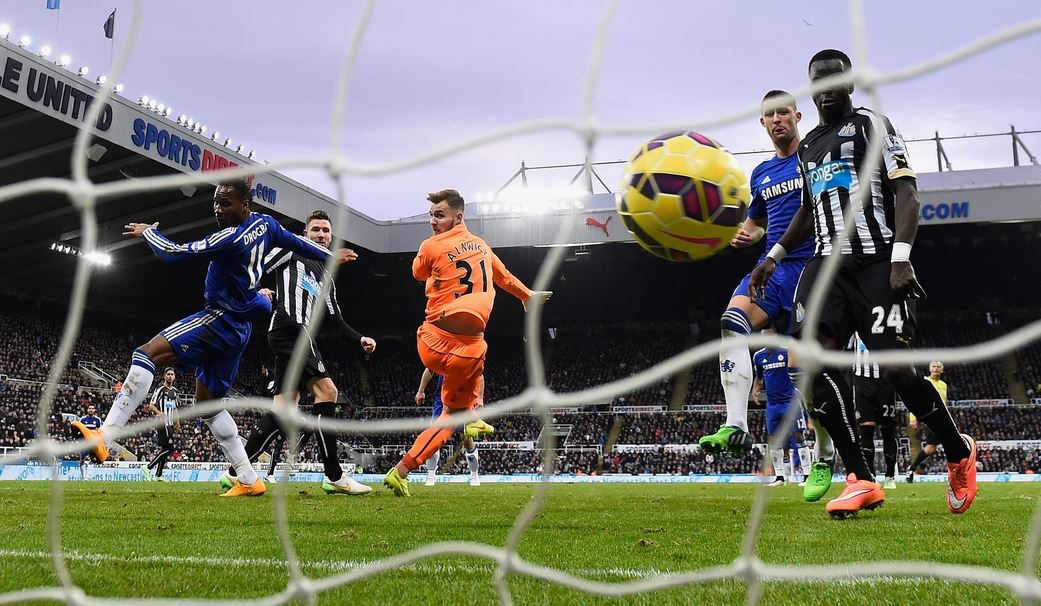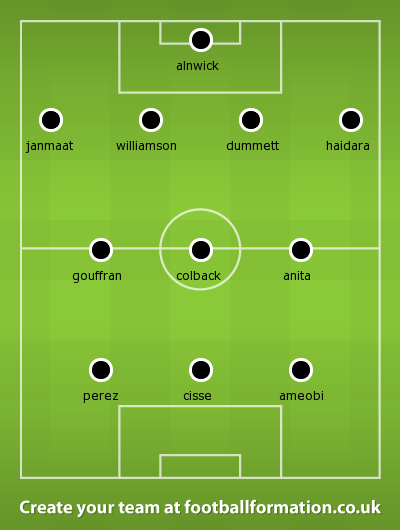What is it with Newcastle's success against Chelsea under Alan Pardew?
How many times has Pardew beaten Chelsea? He has done it four times; once each year since 2011. And if you go back to September 2010, when Chris Houghton was in charge, Newcastle have defeated Chelsea in five consecutive calendar years. Each time has been a rush. I treat myself to quality meat when it happens. I celebrated Newcastle's improbable upset victory at Stamford Bridge in the 2010-2011 League Cup with a filet mignon at SushiSamba. I celebrated this latest win with a bacon cheeseburger at the Piper's Kilt.
In October and November, Chelsea looked unstoppable. They are arguably the best team in Europe.
How about this match? It evolved. It had transitions. It had a transfer in the balance of power, confidence, and control. If you are into tactics and grit, this was your must-see match of week.
The match began with Chelsea making crisp passes and creating chances. However, almost all of their early shots were off-target. Newcastle were struggling to create chances, and their attacks were being broken up well before they could get to their opponent's area. Newcastle's first big chance came in the 32nd minute, and it should have ended with a goal. Ayoze Pérez made a brilliant back-heel pass to Jack Colback in front of the net. Colback had a ton of net to aim at, and yet missed. He put his forehead down on the pitch, knowing that it could have been his team's only real chance of the day.
But then the game transitioned. Chelsea didn't control the match the same way they did in the first thirty minutes. Newcastle finally had some sustained attacks. There still weren't any shots on target, but they were holding onto the ball more.
During added time in the first half, Newcastle keeper, Rob Elliott, tore a thigh muscle while kicking the ball down-field. Seconds later, a cross from Sammy Ameobi didn't connect, and the half ended scoreless. Newcastle had few chances, were lucky not to be down a goal, and had lost their second string keeper indefinitely.
My feeling at that point was that Newcastle had a chance at a draw. So long as they did not concede the first goal, they were going to hang on for a point. There was no need to panic. Even with the third string goalkeeper, 21 year-old Jak Alnwick, taking over from Elliot, I was not nervous. On Facebook, I posted the following status:
“It’s going to be a thrilling 45 minutes of football as Newcastle attempt to hold off Chelsea. Defense!”
I thought half of the midfield did extremely well. And that half was named Jack Colback and Moussa Sissoko. In my notes, they shared the man of the match honors. They were involved in almost every big play. Which brings us to the 57th minute. Sissoko had possession and charged with the ball into the left side of the area. He rolled the ball to Sammy Ameobi, who quickly crossed the ball through Chelsea's Cahill and Terry to Cissé, who was perfectly positioned, and just had to stick out his right foot to score. St. James' Park came alive. Suddenly there was a game and Newcastle had a lead to protect. Cissé had come in to replace Remy Cabella in the 53rd minute. It had to be energizing to to see him make an almost immediate impact on the game.
The defense then stepped-up. Janmaat, Steven Taylor, Coloccini, and Dummett all did their jobs. With each minute, Newcastle seemed to gain a little confidence.
Then things became shaky. Eden Hazard hit the post in the 78th minute. But Newcastle did one of the things they do best: they counter-attacked. In a stunning sequence that immediately followed, Colback, Pérez, Sissoko, and Cissé all combined to score the crucial second goal. It was a sequence that pretty much summed-up Newcastle's offensive capability this season. Colback began the counter-attack with a stiff-arm tackle and took possession. There was no whistle for that. From there, Colback passed the ball to Pérez at midfield, who was fouled hard into the air and down, but not before he made a short pass to Colback. The referee made the call of the match. He gave Newcastle the advantage, and let them play on. Colback connected to Sissoko in the left side of the area with a magnificent through-ball. Chelsea keeper Thibaut Courtois came out to meet him, and almost got the ball. The attack looked over. But Sissoko managed a last-millisecond pass, through Courtois' hands to Cissé who calmly tapped it through a row of three defenders into the empty net. It was game over.
Except it wasn't. Of course not. This club? It's a roller coaster.
While Diego Costa and Fábregas lost their nerve and were both carded two minutes later, a Newcastle collapse was on the horizon, as Steve Tayor mad a bad challenge in the 81st minute, and picked up a second yellow card. He had been booked early in the second half for pulling down Willian. And this foul was no less intentional, as he ran over Schurrle 25 yards away from the Newcastle goal. It was cynical and reckless, and he was off. On the next play, Drogba headed the ball pass Alnwick on a free kick. The ball was visible from beginning to end, and Alnwick was not in the best position. Newcastle would be spending the next 9 minutes, plus 6 minutes of extra time, hanging on to a one goal lead. And they just hung on for the win.
Incredible. Jose Mourinho didn't take it very well at first, but was classy in the end. Sort of. As Gabriele Marcotti of ESPN pointed out, Mourinho is very clever, and selects his words very deliberately to help steer the English sports media.
Now how did this improbable victory happen? Was Newcastle better prepared? Did Chelsea see their trip up to the chilly northeast as a nuisance? Or was this yet another example of Newcastle relying on counter-attacks to stun a bigger, better club?
That's Matt's argument over at I Wish I Was a Geordie. Let's accept his argument that Newcastle are built to bite bigger squads through counter-attacking. After all, he's a pundit, unlike me. But then how do we explain that Newcastle have done it against 4 teams in just 2 months (City, Spurs, Liverpool, and Blues)? Do their opponents not watch footage and scout them? If Matt is correct, we can expect Newcastle to have similar success against Arsenal and Man United before this month is over.
On the flip side of Matt's argument, he has an excellent point. If Newcastle play a 4-4-2 diamond with a counter-attack mindset against dominant squads, how come they fail to get three points when they play a 4-3-3 formation against a more equal side? Why couldn't they beat West Ham or Burnley last month? Is it a lack of motivation and consistency?
Still, isn't it time to give Alan Pardew credit for this recent turn-around in form? What if Pardew's tactical plan against Chelsea was to get a draw? Then clearly his squad exceed expectations by scoring two unanswered goals against the best team in Europe, yes? Furthermore, can we explain how Newcastle effectively attacked Chelsea down the left side in both halves? Didn't Pardew do his homework? A good team needs to take advantage of lapses and mistakes by their opponents, and that's exactly what Newcastle did. And like everything else in team sports, the next game will tell us more about this squad, and how far they can go this season.
And so, how does Pardew and his players prepare for their trip to Arsenal with over 10 players unavailable due to injury or suspension? The back four appears to be set with Janmaat, Williamson, Coloccini (or Dummett), and Haïdara. But the midfield and strikers are anyone's guess. The consensus is that Newcastle are going to have to play Tioté, Cabella, Colback, Gouffran, and Anita in the midfield at some point in the game. So why not use a 4-3-3 formation? Have Colback be the center of the midfield, and Cissé be the center forward, with Pérez on the wing?
Here's a guess at what is possible on Saturday:
Now on to the pundits.
Jim McMeachin, Coming Home Newcastle:
“Fabricio Coloccini and Steven Taylor had the unenviable task of stopping Diego Costa, who so far as we know is still living in Captain Colo’s back pocket.”
“It’s easy to say Cisse should have started, but he wouldn’t have offered such an outlet when Chelsea were piling on the pressure in the opening stages. Perez played that role nicely; Cisse then provided an instant impact. It worked perfectly, and sometimes managers — even Pardew — deserve the credit.”
